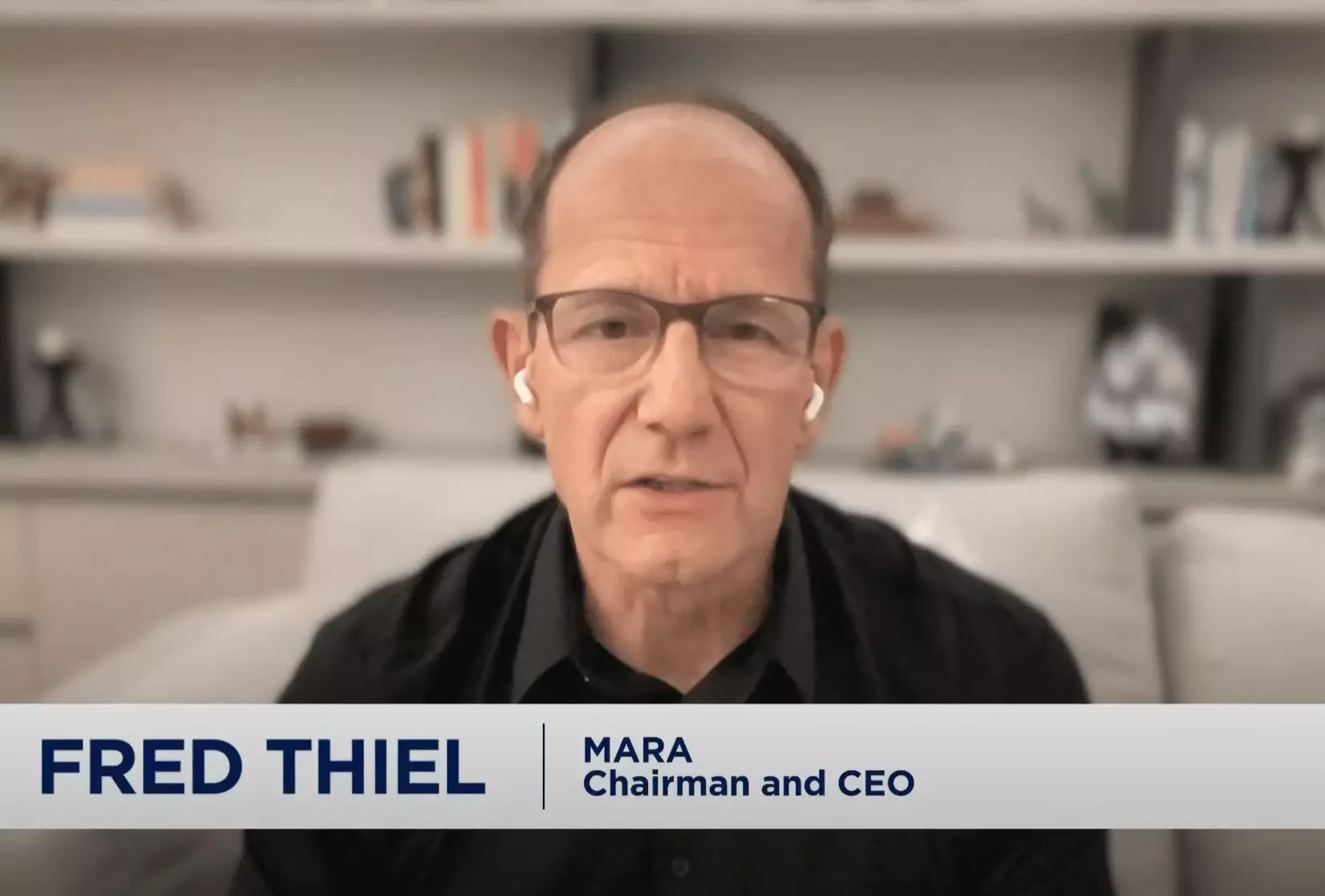Bitcoin, the pioneering cryptocurrency, continues to capture the attention of institutional investors and industry leaders alike. Recently, Fred Thiel, the CEO of Marathon Digital Holdings (NASDAQ: MARA), provided insightful commentary regarding Bitcoin’s potential growth trajectory and the current market dynamics in a candid interview with CNBC. Thiel’s analysis reflects the burgeoning institutional interest in Bitcoin, the evolving regulatory landscape, and the evolving role of major corporations in Bitcoin investment.
Thiel’s perspective on the market is notably optimistic, citing increasing interest from institutions as a pivotal factor behind the surging Bitcoin prices. Throughout 2023, numerous exchange-traded funds (ETFs) focusing on spot Bitcoin have been introduced, igniting a wave of institutional engagement that Thiel believes will be a game changer. Notably, he elaborated that the initial wave of investments into these ETFs was largely driven by retail investors. However, a subsequent shift has seen institutional players, including pension funds, start to allocate their investments into Bitcoin-related equities and directly into Bitcoin itself. This transition not only legitimizes Bitcoin as a robust investment but also cultivates a more stable market environment due to the larger financial reserves that institutional investors command.
One of the more intriguing aspects Thiel addressed was the potential influence of the political environment on Bitcoin’s future. He pointed out that political figures, notably Donald Trump, have expressed pro-Bitcoin sentiments, which could precipitate a more favorable regulatory framework. Such developments are crucial, as supportive regulations can significantly enhance the operational landscape for Bitcoin and other cryptocurrencies, inadvertently inviting more participation from institutional investors. Thiel speculated that if the U.S. government were to adopt a more accommodating stance towards Bitcoin, it might catalyze similar policy shifts in other nations, fostering global acceptance and growth in the cryptocurrency market.
An important point raised by Thiel highlighted the remarkable resilience of the Bitcoin market, particularly when responding to selling pressure from long-term holders. He noted that a significant portion of Bitcoin holders were in profit, and some began to liquidate their assets to realize gains. Nevertheless, Thiel emphasized that the market has displayed impressive resilience, absorbing these transactions without significant negative consequences. This capacity of the market, he argues, suggests that demand is robust enough to support Bitcoin’s price even in the face of selling pressure—indicating a maturing market that is learning to manage volatility more effectively.
Thiel’s discussion on Bitcoin’s historical volatility also warrants attention. Traditionally, Bitcoin has been known for its dramatic price swings, including sudden peaks followed by steep declines. However, Thiel contends that the worst of this volatility may be behind us. He argues that as institutional investments become more prevalent, the inherent volatility in Bitcoin’s price may diminish, stabilizing the cryptocurrency and providing a more predictable investment vehicle for all investors. His remarks suggest that the maturation of Bitcoin as an asset class is underway, fundamentally changing how both retail and institutional investors approach the market.
Delving deeper into the actions of corporations, Thiel illustrated the aggressive strategies of companies like MicroStrategy and Marathon Digital in acquiring Bitcoin. Highlighting their recent bond issuances—$3 billion in the case of MicroStrategy—Thiel pointed out how these corporations leverage capital markets to bolster their Bitcoin reserves. Unlike MicroStrategy, which focuses on capital market strategies solely for Bitcoin accumulation, Marathon operates the largest publicly traded Bitcoin mining operation by hash rate. This operational edge positions Marathon uniquely within the competitive landscape, showcasing its dual strategy of both accumulating Bitcoin and generating it through mining.
Fred Thiel’s insights shed light on the potent forces at play within the Bitcoin market. The combination of institutional interest, a potentially favorable regulatory environment, and corporate strategies signifies a period of growth and transformation for Bitcoin. While some volatility may remain inherent to cryptocurrencies, the overall trajectory suggests an upward trend as demand continues to outpace supply. Viewed collectively, these factors present an optimistic outlook for Bitcoin’s future, with significant implications for investors and corporations poised to capitalize on the evolving landscape. As the Bitcoin price was noted at $92,531 during Thiel’s comments, the signs indicate that the cryptocurrency’s journey is far from over, sparking interest across the investment spectrum.
















Leave a Reply